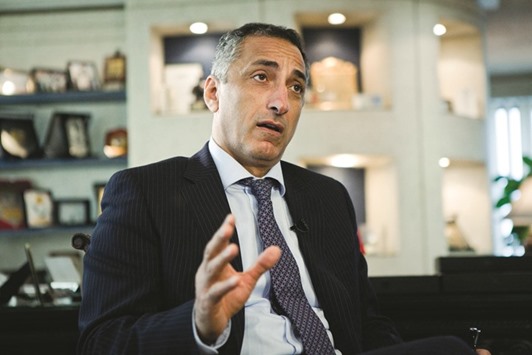Egypt’s central bank governor Tarek Amer said the focus on defending the pound over the past five years was a “grave mistake,” in remarks that signal the possibility of another devaluation following the regulator’s move in March to weaken the currency by about 13%.
Amer, who took office in November, outlined views on the currency, the economy and monetary policy in three separate newspaper interviews published on Sunday. He said authorities can no longer delay measures that would control the use of foreign currency. Under his leadership, the central bank is focusing on ways to revive the economy rather than stabilising the exchange rate, he said.
“We have two choices: either keep the pound stable or get factories working,” Amer told the Cairo-based daily Al-Mal. The exchange rate should reflect market and economic forces, he said. “I will take what I think are the right decisions, in my view, and bear the responsibility.”
The biggest one-time devaluation since 2003, which Amer described as a “corrective move,” has failed to rein in a thriving black market, undermining the central bank’s efforts to attract investments that would bolster its reserves and make more hard currency available for businesses. The pound is trading at a discount of almost 20% to its official rate versus the dollar, according to Bloomberg surveys.
Amer’s remarks are “a clear signal another round of devaluation is around the corner,” said Hany Farahat, senior economist at Cairo-based CI Capital Holding, a unit of the country’s biggest publicly traded lender. “The governor reiterated the direction of opening up and liberalising the pound, and adopting a more flexible exchange rate,” Farahat said.
The central bank has taken steps to ease restrictions on dollar transactions since Amer took office. In announcing the March devaluation, policy makers also said they would adopt a more flexible exchange rate.
However, the pound has been little changed in the central bank’s weekly foreign-exchange sale.
The regulator also came under public criticism last week after local lenders received a circular, seen by Bloomberg News, ordering them to block the use of Egyptian pound-issued debit and prepaid credit cards abroad. Amer later denied any change in policy.

Amer says authorities can no longer delay measures that would control the use of foreign currency.
